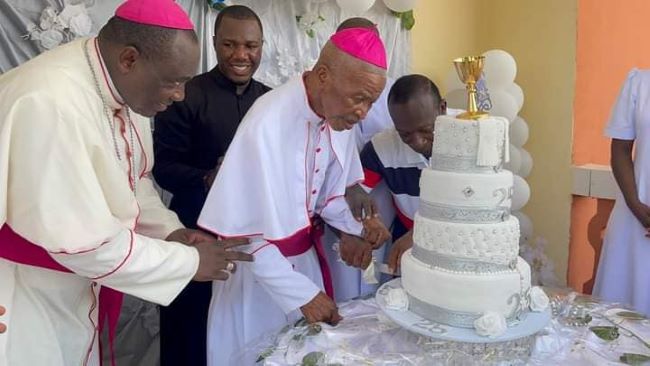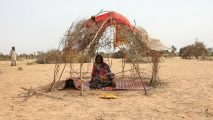Categories
Archives
- April 2024
- March 2024
- February 2024
- January 2024
- December 2023
- November 2023
- October 2023
- September 2023
- August 2023
- July 2023
- June 2023
- May 2023
- April 2023
- March 2023
- February 2023
- January 2023
- December 2022
- November 2022
- October 2022
- September 2022
- August 2022
- July 2022
- June 2022
- May 2022
- April 2022
- March 2022
- February 2022
- January 2022
- December 2021
- November 2021
- October 2021
- September 2021
- August 2021
- July 2021
- June 2021
- May 2021
- April 2021
- March 2021
- February 2021
- January 2021
- December 2020
- November 2020
- October 2020
- September 2020
- August 2020
- July 2020
- June 2020
- May 2020
- April 2020
- March 2020
- February 2020
- January 2020
- December 2019
- November 2019
- October 2019
- September 2019
- August 2019
- July 2019
- June 2019
- May 2019
- April 2019
- March 2019
- February 2019
- January 2019
- December 2018
- November 2018
- October 2018
- September 2018
- August 2018
- July 2018
- June 2018
- May 2018
- April 2018
- March 2018
- February 2018
- January 2018
- December 2017
- November 2017
- October 2017
- September 2017
- August 2017
- July 2017
- June 2017
- May 2017
- April 2017
- March 2017
- February 2017
- January 2017
- December 2016
- November 2016
- October 2016
- September 2016
- August 2016
- July 2016
- June 2016
Featured
 Bishop Francis T. Lysinge @ 25!
Bishop Francis T. Lysinge @ 25!  Understanding the Biya Francophone regime’s support for the Israeli genocide in Gaza
Understanding the Biya Francophone regime’s support for the Israeli genocide in Gaza  Poverty under Biya: Cameroonians embrace Chinese language for brighter futures
Poverty under Biya: Cameroonians embrace Chinese language for brighter futures  Cameroon is broken: Who can fix it?
Cameroon is broken: Who can fix it?  Ethiopia: U.S Senator Cardin Statement on the Killing of Bate Urgessa
Ethiopia: U.S Senator Cardin Statement on the Killing of Bate Urgessa
Most Commented Posts
 4 Anglophone detainees killed in Yaounde
4 Anglophone detainees killed in Yaounde
19 comments Chantal Biya says she will return to Cameroon if General Ivo Yenwo, Martin Belinga Eboutou and Ferdinand Ngoh Ngoh are sacked
Chantal Biya says she will return to Cameroon if General Ivo Yenwo, Martin Belinga Eboutou and Ferdinand Ngoh Ngoh are sacked
13 comments Anglophone Nationalism: Barrister Eyambe says “hidden plans are at work”
Anglophone Nationalism: Barrister Eyambe says “hidden plans are at work”
12 comments The Anglophone Problem – When Facts don’t Lie
The Anglophone Problem – When Facts don’t Lie
12 comments Largest wave of arrest by BIR in Bamenda
Largest wave of arrest by BIR in Bamenda
10 comments
Latest Tweets
Featured
-

Bishop Francis T. Lysinge @ 25!
-

10 Million Cameroonians lived on less than $1.80 per day
-

Football: Xavi to remain as Barcelona coach
-

Biya regime delays bond sale amid regional market strain
-

Historic agreement between Nigeria and Cameroon to tackle wildlife crime
-

Southern Cameroons refugees in Nigeria receive farm seedlings
-

Douala: Investment Forum wraps up with honors for investment champions
© Cameroon Concord News 2024
26, February 2020
Government forces and armed ethnic Fulani killed at least 21 in Ngarbuh, including 13 children and 1 pregnant woman 0
Government forces and armed ethnic Fulani killed at least 21 civilians in Cameroon’s Ngarbuh village, including 13 children and 1 pregnant woman, on February 14, 2020. They also burned five homes, pillaged scores of other properties, and beat residents. Some of the bodies of the victims were found burned inside their homes. The government denies that its troops have deliberately committed crimes.
“The gruesome killings of civilians, including children, are egregious crimes that should be effectively and independently investigated, and those responsible should be brought to justice,” said Ilaria Allegrozzi, senior Africa researcher at Human Rights Watch. “Denying that these crimes have occurred adds another layer of trauma to survivors and will only embolden government troops to commit more atrocities.”
Human Rights Watch interviewed 25 people, including 3 witnesses to the killings and 7 relatives of victims, about these events that took place in Ngarbuh, Donga Mantung division, in the North-West region. This area has been severely affected by violence between government forces and armed groups seeking a separate state for the North-West and South-West anglophone regions. Ethnic Fulani also live in and around Ngarbuh. They are known as “Mbororo” and are mainly pastoralists.
Human Rights Watch also obtained lists of the victims’ names from five sources and spoke to people, including relatives of the victims and residents who carried out the burials, who independently confirmed the victims’ identities.
Witnesses said that between 10 and 15 soldiers, including members of the Rapid Intervention Battalion, the elite unit of the Cameroonian army, and at least 30 armed Fulani first entered Ngarbuh 1, a neighborhood in Ngarbuh, on foot at about 11 p.m. on February 13, looting scores of homes. Some of these forces then continued to the Ngarbuh 2 neighborhood, looting homes and beating civilians. At around 5 a.m. on February 14, a group of soldiers and armed Fulani attacked the Ngarbuh 3 neighborhood, killing 21 civilians in four homes, then burning the houses.
Human Rights Watch also reviewed satellite imagery taken before and after the attack in Ngarbuh 3. The post-attack image, taken at 10:24 a.m. Cameroon time on February 14, shows several homes in Ngarbuh with damage that is consistent with burning.
A 32-year-old man who witnessed the killing of his whole family, including seven children, said: “I heard gunshots and left immediately to hide beside my house. From there, I saw the military shooting my family members one by one as they attempted to escape. They shot our mother first. Then, they shot the children, whose bodies all fell on her. Then, they set my home on fire.”
Human Rights Watch made several attempts to contact a senior member of the government but did not receive a response. Cameroon’s defense minister issued two statements on February 17. He first announced that the government had opened an investigation and that its findings would be made public. In a second statement later that day, he stated that the investigation findings “could be published at an appropriate time.” Both statements asserted that armed “terrorists” attacked government security forces and that the fighting led to an explosion of fuel containers, which destroyed several homes and killed one woman and four children. This assertion was restated on February 18 in a news release from the communication minister.
However, witnesses and residents with whom Human Rights Watch spoke said that there was no confrontation between armed separatists and security forces, that they heard no explosions, and that the killings were deliberate.
Residents said the attack was to punish civilians suspected of harboring separatist fighters. Twelve witnesses said that, after the killings, the military addressed residents in Ngarbuh 2, warning that their village would be destroyed if they continued to shelter separatists.
During and after this speech, soldiers threatened people, admitting that they had killed children in Ngarbuh 3, and saying that they would do the same in Ngarbuh 2. “The military broke into my house,” a 45-year old woman said. “They said my children were Amba fighters [separatists] and they searched for guns. They found none, but they beat me and said: ‘We have already killed children in Ngarbuh 3, so we can kill you too.’”
On February 16, a joint team of the United Nations Office for the Coordination of Humanitarian Affairs and the UN High Commissioner for Refugees attempted to carry out a humanitarian needs assessment in Ngarbuh, but Rapid Intervention Battalion soldiers blocked them in Ntumbaw, the village closest to Ngarbuh, where the UN teams had started interviewing those displaced by the attack. Witnesses said that the soldiers photographed those who were being interviewed and prevented the UN team from doing its work.
The UN secretary-general in a February 17 statement expressed concern over the killing of civilians in Ngarbuh and urged the government of Cameroon to open an investigation and hold those responsible accountable. The following day, the UN High Commissioner for Human Rights spokesperson said that Cameroonian authorities should ensure that its security forces “abide by applicable international law norms standards during the conduct of their operations.” On February 21, four UN officials, including the special representative for children and armed conflict, the special representative on sexual violence in conflict, the special representative on violence against children, and the special adviser on the prevention of genocide, issued a joint statement expressing their deep concern about reports of increasing violence in the Anglophone regions, including the attack on Ngarbuh, and called on the Cameroon government to ensure full respect for human rights.
The United States called for the government to authorize an independent investigation and ensure safety for witnesses. The killings in Ngarbuh were also condemned by other countries, including France, Canada, and the United Kingdom.
This is not the first time that the Cameroonian authorities have denied that its troops killed civilians. In 2018, an investigation conducted by Amnesty International, the BBC, and investigative journalists showed that Cameroonian soldiers depicted in a video carried out extrajudicial executions of two women and two children in the Far North region. The communication minister initially dismissed the video footage as “fake news.” However, seven soldiers were later arrested in connection with the killings. The trial is ongoing.
“The government of Cameroon should allow an independent investigation, with participation from the UN, into the Ngarbuh massacre, and make its findings public,” said Allegrozzi. “To be certain that assistance is not facilitating the commission of atrocities, Cameroon’s partners should halt military cooperation pending the results of such an inquiry.”
Background
Ethnic Fulani living in and around Ngarbuh are also known as “Mbororo” and are mainly pastoralists. Prior to the escalation of the crisis in the Anglophone regions, conflicts had occurred between the Fulani and local farmers over resources, including grazing land. This has been exacerbated since 2017, when violence erupted in the North-West and South-West regions. Armed separatists have targeted ethnic Fulani for their cattle in the North-West region and have accused them of joining vigilante groups sympathetic to the government. Armed Fulani groups have also attacked communities where armed separatists are known to operate.
Killings in Ngarbuh 3
Human Rights Watch research suggests that the killing of civilians in Ngarbuh 3 was deliberate. Witnesses and residents said that between 10 and 15 security force members acted jointly with a group of about 30 ethnic Fulani men who wore civilian clothes and were armed with machetes, clubs, and hunting guns.
Three witnesses said that the attack in Ngarbuh 3 took place at around 5 a.m. on February 14, 2020. Soldiers and armed Fulani attacked four houses, fatally shooting some residents. They also set the houses on fire, burning the bodies.
In one house, soldiers killed seven people, including five children, all from the same family. A 45-year-old relative who rushed to the scene after the killing said that four of the children were younger than 12.
In a second house, soldiers and armed Fulani killed nine people, including seven children and two women.
A resident who was among the people who buried the bodies told Human Rights Watch: “When I arrived at the scene, I could not believe my eyes. It was horrific. Some of the bodies were burned beyond recognition. Survivors were shocked and in panic. But many fled into the bush fearing for their lives.”
In a third house, military and armed Fulani killed two people, including a pregnant woman.
In a fourth house, military and armed Fulani killed three people, including a child. A woman living in the house was severely wounded but survived. A relative of the victims said he found the sole survivor with machete wounds all over her body.
Looting and Beatings
Twelve witnesses described how security forces and armed Fulani pillaged homes in Ngarbuh 1 and in Ngarbuh 2, forced people outside, and beat them.
A 32-year-old woman said that soldiers threatened to kill her if she did not give them money. “They kept beating me with the back of their guns and asking for money,” she said.
Another resident of Ngarbuh 2, a pastor, said:
The military were with a group of armed Fulani. They broke into and pillaged all the homes in Ngarbuh 2. They pulled people out, including me, and gathered us together at the village square, near the market. Some people were tied up with ropes. We were forced to the ground on our bellies. We could not raise our heads. When you looked up, they would beat you with machetes…. We were eventually released.
Culled from Human Rights Watch